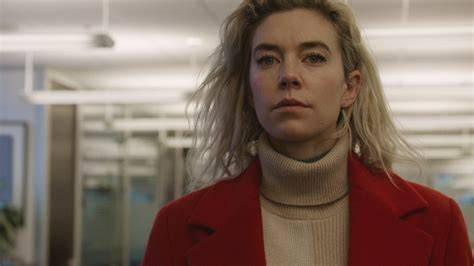There is a home birth sequence that may have gone wrong because of the incompetence of a midwife, nicely played by Molly Parker. This sequence is filmed in a single twenty-two-minute single-take!
Hold on, did I miss something involving the ageless Ellen Burstyn? That’s how I felt throughout a confusing movie called “Pieces of a Woman” starring Vanessa Kirby and Shia LaBeouf. Centered on the tragic loss of a newborn baby, the film is inspired by actual events in the life of the film’s writer, Kata Weber, and her partner, the film’s director, Kornel Mundruczo. The film is based on a play written in Mundruczo’s native Hungary. An American producer picked up the project when it did not get support from the Hungarian National Film Fund.
Make no mistake: Kirby and LaBeouf are excellent here in a home birth sequence that may have gone wrong because of the incompetence of a midwife, nicely played by Molly Parker. This sequence is filmed in a single twenty-two-minute single-take. Bravo!
The problems begin after the baby’s death and reside in the character of Kirby’s mother, played by Ellen Burstyn. Burstyn’s character is problematic in many ways, and there is no way she could have successfully fleshed out what is a mouthpiece, given the awful script she must work with. But the real problem lies in the math.
How can an actress who is pushing ninety be the mother of an actress in her, say, her late twenties or early thirties? It does not appear that she is adopted. You might say that this shouldn’t matter, but it does. We all know Ellen Burstyn. She has been around forever. She had a late start when pushing forty, but she broke through with an unforgettable performance playing a much more realistic mother, Cybill Shepherd’s mother, in “The Last Picture Show” in 1971. In “Pieces of a Woman,” was she supposed to be Kirby’s grandmother? I don’t think so.

Burstyn’s character, not Kirby’s, wants to prosecute the midwife. And here, things get crazy. Kirby’s character is Jewish, although she gives off no Jewish vibe. Burstyn wants the case to go forward so she and her family can get some payback for what she suffered in the Holocaust! I am not kidding.
This leads to Burstyn’s big Oscar speech (not successful), where she tells Kirby and the Academy of Motion Picture Arts and Sciences that her mother gave birth to her and had to hide her in an outhouse in a Polish ghetto while the trains were leaving for the camps in 1944. This is a pandering of the lowest order and makes a mockery of its subject matter
But again, we have math. I thought the movie was set in the present day. That would make Burstyn’s character seventy-six, meaning she gave birth at forty-six. It’s not impossible but implausible, especially since this movie is about birth. And that Burstyn’s character never misses a beat when it comes to espousing her life of suffering. As I said, it’s all very confusing.


















